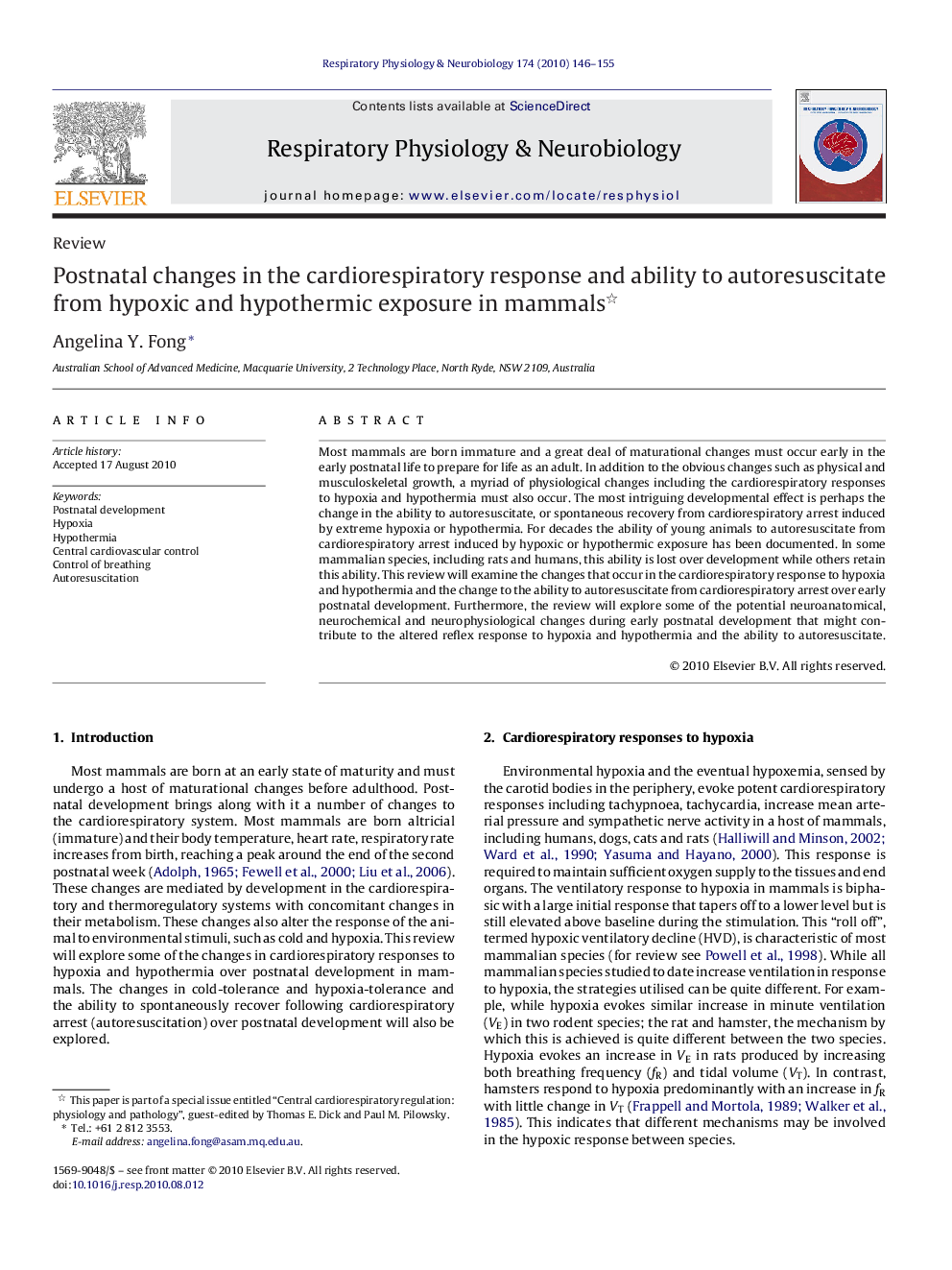| Article ID | Journal | Published Year | Pages | File Type |
|---|---|---|---|---|
| 2847617 | Respiratory Physiology & Neurobiology | 2010 | 10 Pages |
Most mammals are born immature and a great deal of maturational changes must occur early in the early postnatal life to prepare for life as an adult. In addition to the obvious changes such as physical and musculoskeletal growth, a myriad of physiological changes including the cardiorespiratory responses to hypoxia and hypothermia must also occur. The most intriguing developmental effect is perhaps the change in the ability to autoresuscitate, or spontaneous recovery from cardiorespiratory arrest induced by extreme hypoxia or hypothermia. For decades the ability of young animals to autoresuscitate from cardiorespiratory arrest induced by hypoxic or hypothermic exposure has been documented. In some mammalian species, including rats and humans, this ability is lost over development while others retain this ability. This review will examine the changes that occur in the cardiorespiratory response to hypoxia and hypothermia and the change to the ability to autoresuscitate from cardiorespiratory arrest over early postnatal development. Furthermore, the review will explore some of the potential neuroanatomical, neurochemical and neurophysiological changes during early postnatal development that might contribute to the altered reflex response to hypoxia and hypothermia and the ability to autoresuscitate.
